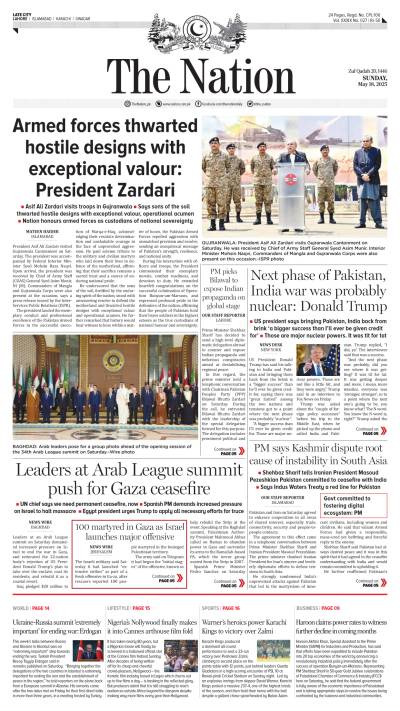For decades, Pakistan’s economy and security have been undermined by the unchecked smuggling of Iranian fuel. This illegal trade has not only cost the country billions in lost revenue but also fueled a range of illicit activities, including terrorism. Recent measures to curb fuel smuggling, particularly the anti-smuggling campaign launched on October 15, 2023, have begun to show promising results. These efforts are not just about plugging economic losses; they are about restoring the integrity of Pakistan’s borders, markets, and institutions.
The magnitude of Iranian fuel smuggling into Pakistan is staggering. Before the crackdown, an estimated 20.5 million liters of Iranian fuel flowed illegally into the country daily. This volume represented a direct loss of tax revenue and duties, amounting to $820 million annually. Smuggled fuel, purchased at extremely low prices in Iran, was sold in Pakistan at much higher rates, disrupting local markets and undercutting legitimate businesses.
Moreover, this illicit trade had broader implications for national security. The profits from smuggling were channeled into criminal networks and terrorist activities, particularly in Balochistan and Khyber Pakhtunkhwa. According to an estimate, smuggling operations generated an estimated Rs700 million daily, much of which was used to fund anti-state elements and other illegal activities.
The anti-smuggling campaign initiated in October 2023 marked a turning point. A multi-phase approach was adopted, beginning with restrictions on inter-provincial smuggling through Joint Checkpoints (JCPs) and strict caps on fuel inflow. By November 2024, these measures had significantly reduced the average daily smuggled fuel inflow from 20.5 million liters to 4.5 million liters—a remarkable 78% decline.
Key enforcement strategies included managing fuel inflow; a daily limit of 6.5 million liters was set to meet essential needs of desolate areas bordering Pak-Iran border while reducing excess. Restrictions were imposed on the number of vehicles and boats crossing, with only 1,860 vehicles and 600 boats allowed per day, and fuel crossings were limited to four operational days per week. At key checkpoints like Abdoi (District Killa Abdullah) and Kuntani (District Gawadar), fuel inflow was reduced by 40% and 87%, respectively. Additionally, the temporary closure of six major crossings by Iran between October 27 and November 17 helped further control the situation.
The impact of these measures is profound. Economically, the reduction in smuggling translates into the recovery of approximately $640 million annually. This recovered revenue strengthens the national exchequer, enabling investments in essential sectors such as education, healthcare, and infrastructure. The security benefits are equally significant. With reduced smuggling, the financial lifeline of criminal networks and terrorist organizations is being severed. This development directly contributes to improved stability in regions like Balochistan, which has long suffered from violence fueled by illicit trade profits. Moreover, better-regulated fuel trade reduces the prevalence of substandard fuel, improving operational efficiency for businesses and individuals alike.
The fight against fuel smuggling has implications far beyond economics. As outlined in a recent analysis, smuggling forms part of a broader illegal spectrum that weakens state authority and facilitates corruption and organized crime. By curbing smuggling, Pakistan is not only recovering lost revenue but also strengthening its institutions and reinforcing the rule of law.
This is particularly crucial given the role of smuggling networks in exacerbating terrorism. Fuel smuggling profits have historically been linked to funding extremist groups, undermining national security and destabilizing border regions. The ongoing crackdown sends a strong message that Pakistan is committed to rooting out these networks and prioritizing state and human security.
While the progress achieved so far is commendable, sustaining and building upon these gains will require a comprehensive approach to prevent a rise in smuggling, it’s important to keep investing in technology and infrastructure at border checkpoints. Close cooperation between civilian and military authorities, as well as with neighboring countries like Iran, is key to maintaining pressure on smuggling networks. Public awareness campaigns can help educate citizens about the negative economic and security impacts of smuggling, building support for anti-smuggling efforts. Additionally, judicial reforms that streamline prosecutions and ensure accountability for smugglers will strengthen the deterrent effect of enforcement actions. Pakistan should establish fuel supply facilities along the Pak-Iran border to better regulate fuel flow and curb smuggling. Expanding the border market economy through government initiatives will encourage legal trade, reduce illegal activities, and strengthen economic ties with Iran. This approach will enhance both security and stability in the region.
The reduction in Iranian fuel smuggling is a significant victory for Pakistan’s economy and security. By tackling this illicit trade head-on, the government is not only recovering lost revenue but also weakening the networks that perpetuate lawlessness and instability. These efforts align with a broader vision of a prosperous, secure, and self-reliant Pakistan.
The journey ahead will not be without challenges, but the successes achieved so far demonstrate that with resolve, coordination, and sustained effort, Pakistan can overcome the scourge of smuggling. This is not just a fight for economic stability; it is a fight for the soul of the nation—a fight Pakistan cannot afford to lose.
SARDAR SHEHRYAR KHAN
The author is an independent researcher who writes on issues concerning state and human security, focusing on terrorism, insurgency and militancy. He can be contacted on sardarsheheryar235@gmail.com.





